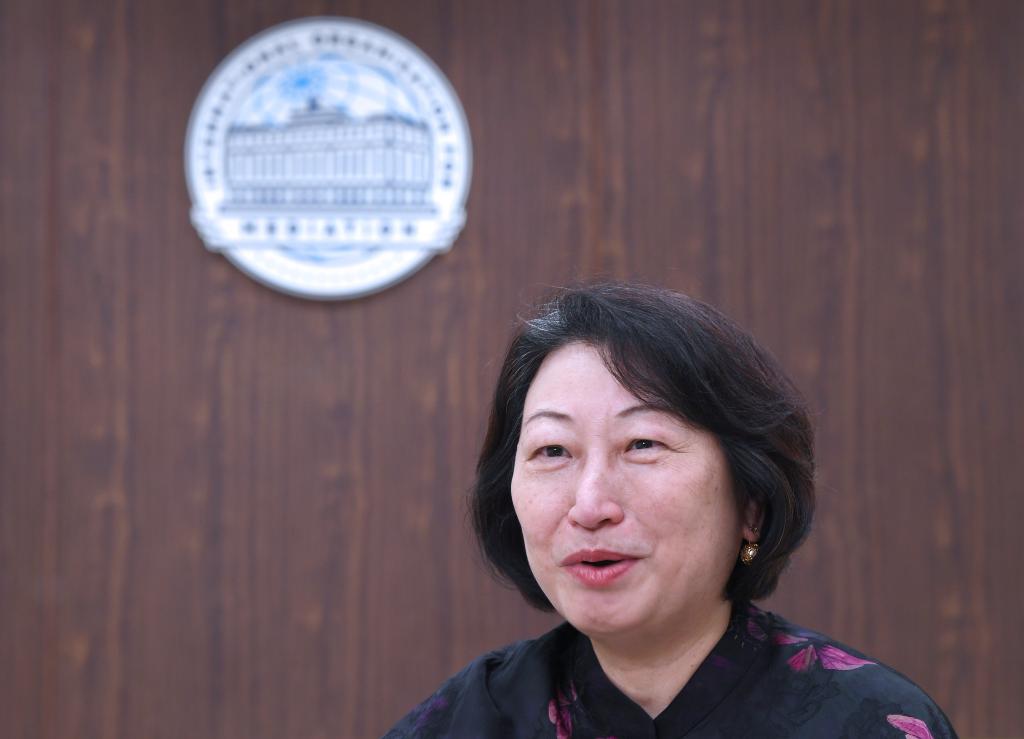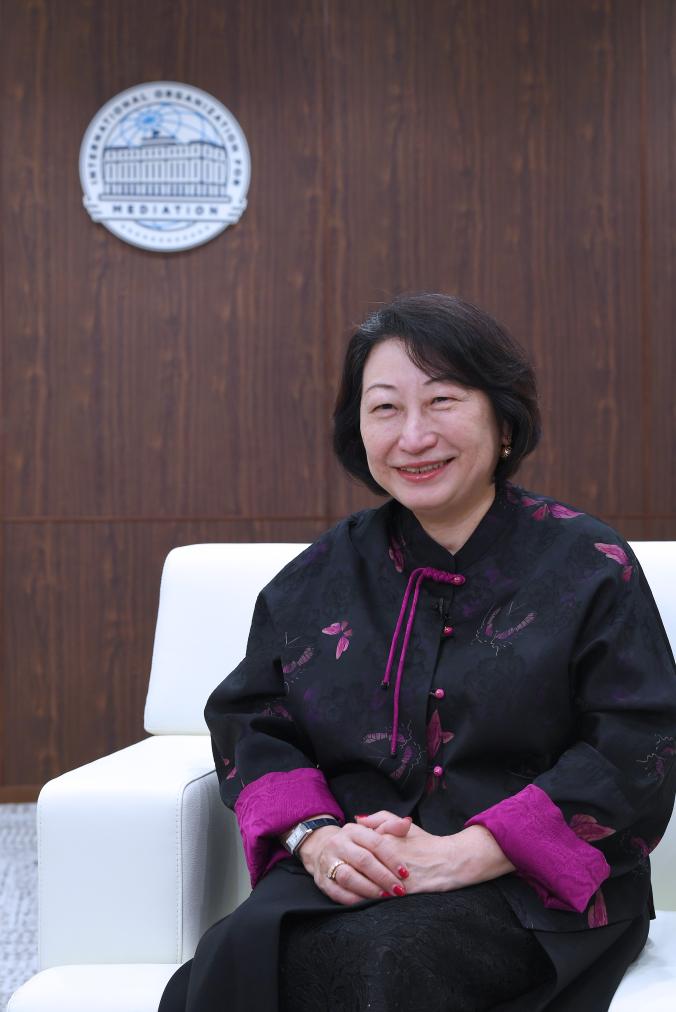Interview: IOMed's secretary-general eyes Hong Kong emerging as "capital of mediation"
Source: Xinhua
Editor: huaxia
2025-11-07 11:46:45

Teresa Cheng, secretary-general of the International Organization for Mediation (IOMed), speaks during an exclusive interview with Xinhua in Hong Kong, south China, Oct. 24, 2025. (Xinhua/Chen Duo)
by Xinhua writer Wang Xinyi
HONG KONG, Nov. 7 (Xinhua) -- The establishment and services of the International Organization for Mediation (IOMed) can bridge cultural differences in dispute resolution, offer fresh options to involved parties, and strike a balance between settling disputes and preserving relationships, the body's secretary-general said recently.
In an exclusive interview with Xinhua, Teresa Cheng explained the workings of IOMed, a freshly inaugurated international organization headquartered in China's Hong Kong Special Administrative Region (HKSAR) and the world's first intergovernmental legal organization dedicated to resolving international disputes through mediation.
"The presence of IOMed is aimed at complementing existing international dispute resolution services," Cheng said, noting that the organization "fills an institutional gap in global mediation."
The IOMed takes it as its mission to mediate disputes between states or between a state and foreign investors, and international commercial disputes based on the will of relevant parties, and responds to real-world needs, she said.
Both litigation and arbitration are adversarial processes that typically result in a "win-lose" outcome, where "you have to decide who is right and who is wrong," she said, explaining that these two established mechanisms have specific applications and inherent value.
"Mediation is not meant to override litigation or arbitration. Instead, it is centered on reconciliation, seeking mutually acceptable solutions without ruling on right or wrong," and forms part of a diverse spectrum of dispute resolution approaches alongside the other two, she said.
To illustrate its value, she pointed to real-world scenarios. Neighboring countries locked in disputes often need to maintain diplomatic ties, and mediation can foster peaceful coexistence. International investments, which typically span 10 to 30 years, can be derailed by confrontational legal processes, but mediation can smooth differences. For example, it can "modify their current investment regime and investment concession arrangements" to keep projects on track and deliver win-win outcomes. She added that the same logic applies to international commercial disputes.
The Global South has a pressing need for a "cost-effective, time-efficient dispute resolution mechanism," she said, adding that these countries prefer to see their disputes "resolved in a more conciliatory manner" that yields "win-win" outcomes.
"They would also very much appreciate the ability to take control of the process and the outcome, and mediation affords them precisely that," Cheng noted. She described mediation as a "very flexible form of dispute resolution," which allows countries to design a process tailored to their specific disputes, based on voluntariness.
Mediation, as is clearly stated in Article 33 of the UN Charter, is one of the first means that should be tried in seeking peaceful solutions to international disputes. But so far, there is not yet an intergovernmental legal organization in this field.
The IOMed fills an institutional gap in international mediation and serves as an important public good in the field of the rule of law for better global governance, Cheng said.
China, as the "initiator and host country of the IOMed," has seen its role garner widespread recognition, gratitude and positive responses from other nations. "All the member states I have encountered are very grateful for China's initiative in bringing this somewhat forgotten means of resolving disputes back to the forefront," Cheng said.
A core feature of the IOMed is the equal participation of all signatory and contracting states, she noted. Throughout previous meetings, countries have engaged in mutual respect, thorough consultation and equitable decision-making.
"I have witnessed mutual respect and understanding among all signatory states in these meetings. I can also feel and witness the respect for the equality of states in the discussions," Cheng added.
This spirit of extensive consultation, joint contribution and shared benefits underpins the development of the convention, the formulation of codes of conduct and other institutional affairs, she noted.
As a Hong Kong resident, Cheng expressed sincere gratitude to the central government for locating the IOMed's headquarters in the city. She described Hong Kong as an international metropolis with "a strong can-do spirit" and unique advantages, making it an ideal host for such an international body.
While mediation does not directly depend on litigation procedures, the rule of law is its critical pillar. Cheng believes that Hong Kong, drawing on the institutional strengths of "one country, two systems," serves as a "super-connector" and "super value-adder." Its robust legal framework, she noted, provides a firm underpinning for the stable operation of the IOMed.
Cheng believes that the central government's decision to base the IOMed's headquarters in Hong Kong will help promote mediation as a global dispute resolution method and support the city in becoming "the capital of mediation."
As a newly established international organization, the IOMed's immediate priorities are improving internal systems and infrastructure to lay the groundwork for future development, according to the secretary-general.
She also outlined two key priorities: raising visibility and building capacity. This includes promoting understanding and awareness of mediation, fostering application skills and developing a professional pool of mediators and related talents. Over the long term, the organization seeks to build a comprehensive mediation ecosystem.
"We very much hope that more states will continue to ratify the convention so that this highly positive and thriving organization can keep developing," Cheng said. ■

Teresa Cheng, secretary-general of the International Organization for Mediation (IOMed), speaks during an exclusive interview with Xinhua in Hong Kong, south China, Oct. 24, 2025. (Xinhua/Chen Duo)



